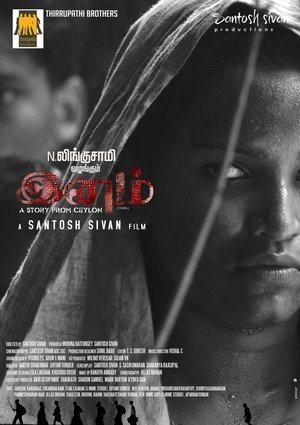
Inam
Inam begins with that oft-heard Tamil saying, 'Yaadhum oore yaavarum kelir' and goes on to narrate the story of Rajini ( Sugandha Ram, conveying vulnerability and fear very well), a Sri Lankan Tamil girl, who, we understand, is seeking refuge in India. If the recent Ravana Desam presented the plight of the people on the sea when they try to crossover to India, Inam gives us a peek into their ordeal before their board the boats. Though there is a narrative arc, Rajini's story is presented as compilation of moments from her live. We are introduced to the characters in her life — Tsunami Akka ( Saritha), who has lost her daughter to the war and has now built a family of sorts around her with orphaned kids and teenagers, Stanley Master ( Karunas), a school teacher who yearns to reach the safe shores of another nation, his wife Stella, Ravi ( Shyam Sundar), an angry youngster on whom Rajini has a crush, and a host of youngsters. Into this motley group enters Nandan ( Star Karan), a special child, who wants to find his fighter brother. In the first half, we get to see how these characters try to lead as normal a life as possible. We see them bonding together, teasing each other, learning together, and even falling in love. However, it is the final stage of war and the battle soon reaches their shores. Even as they try to stay alive, they get scattered or worse die. Rajini, who is wedded to Nandan, flees with one of her friends and her pre-teen husband, but end up in the hands of the Sri Lankan forces. Coming on the heels of the UN's decision to investigate war crimes in Sri Lanka, Inam is very much topical and mostly presents a neutral perspective on the last phase of the brutal civil war. It wants to show how war can tear apart the moral fibre of humans, and how it affects even those who aren't involved in the fighting. It also tries to show how a pacifist will also become aggressive when pushed to his limits. In one scene, we see Stanley taking on a group of Sri Lankan soldiers who, in the name of searching, feel the women up. He requests, pleads and begs them but when there is no acknowledgement, he stands up to them as he realizes that he has nothing to lose except life and honour. A helpless Rajini is raped but when she gets her chance, she kills the soldier who is forcing himself upon her. Meanwhile, a Lankan soldier bemoans the fact that the war has turned his countrymen into animals, but he will not turn into one. Being a cinematographer, Sivan often resorts to imagery to convey his message. A lengthy shot is seen through a plastic cover holding fishes, half of which are dead, symbolizing the fate of the Tamils in the country. Gods of various religions lie disfigured after a bombing. The most impressionable one is when Rajini pricks her thumb and presses it onto a paper, and we see a thumb impression signifying the bleeding island nation. But the film isn't entirely a sombre affair. There are a few touches of whimsy like a character who has been sitting in one place after accidentally stepping on a landmine, a bedridden one who likes see pictures of women in their swimwear. A chicken that turns into a stew. A kind-of first night between two pairs of teens. A baila song on dosa. But it is Karan who is the source of many of the lighter moments here. An actual Down's syndrome child, he makes Nandan a character to root for with his innocence. Yet, somehow, Inam stops short of being a hard-hitting film. It is very reluctant to spell things out, which, while understandable, given the protests the film has invited from pro-Tamil groups in the state, makes everything a little hazy, as the context isn't firmly established. Some of the bombing and battle scenes look too similar and there are times when we can see Sivan leaning a little too much on his visuals to create the desired impact.
